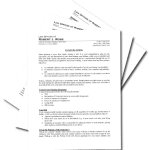Best Private Client Lawyers in Illinois
Share your needs with us, get contacted by law firms.
Free. Takes 2 min.
Or refine your search by selecting a city:
List of the best lawyers in Illinois, United States
United States Private Client Legal Articles
Browse our 1 legal article about Private Client in United States written by expert lawyers.
- Estate Tax 2026 Outlook: United States Exemption Sunset Prep
- Federal estate and gift tax exemption is historically high (over $13 million per person in 2024) but is scheduled to drop by roughly half after December 31, 2025. The IRS "use it or lose it" rules let you lock in the current higher exemption with lifetime gifts; if you wait... Read more →
About Private Client Law in Illinois, United States
Private client law in Illinois focuses on providing legal services to individuals and families in matters that involve personal assets, wealth management, estate planning, trusts, probate, taxes, and elder law issues. Private client attorneys help clients protect and transfer their wealth, navigate complex tax regulations, and address sensitive family matters such as guardianships and charitable giving. The field often requires careful attention to state-specific regulations, family dynamics, and personal goals to craft customized legal solutions that best serve the unique needs of each individual or family.
Why You May Need a Lawyer
There are several situations where individuals and families in Illinois may need to consult with a private client attorney:
- Drafting or updating a will or trust to ensure assets pass to chosen beneficiaries
- Planning for estate taxes and asset protection
- Handling the probate process after the death of a loved one
- Establishing powers of attorney and advance healthcare directives
- Managing guardianship for minor children or disabled adults
- Facilitating charitable giving and philanthropy
- Addressing complex family or business situations, such as blended families or closely-held businesses
- Protecting privacy and managing digital assets
- Resolving estate and trust disputes
- Managing family-owned real estate and business succession planning
Consulting with a lawyer can help avoid costly mistakes and ensure your wishes are carried out properly according to Illinois law.
Local Laws Overview
Illinois has its own set of laws and regulations that govern private client matters, including probate, wills, trusts, and guardianships. Key points relevant to Illinois include:
- Illinois recognizes both wills and revocable living trusts for estate planning purposes. If you die without a will, state intestacy laws determine how your assets are distributed.
- Probate is the court-supervised process for settling an estate. Illinois offers simplified procedures for small estates valued under established thresholds.
- Illinois imposes a state estate tax on larger estates. The threshold for taxation is lower than the federal estate tax exemption, and planning is crucial to protect assets.
- There are specific rules and statutory forms for powers of attorney (healthcare and property) and advance directives in Illinois.
- Illinois courts oversee guardianships for minors and incapacitated adults. Petitioners must meet certain requirements and court oversight continues following appointment.
- Trusts are commonly used in Illinois for asset management, tax planning, disability planning, and avoiding probate.
- Charitable giving can be structured through bequests, charitable trusts, and foundations, all of which have unique legal requirements and tax implications.
Each of these areas involves specific procedures and deadlines established by Illinois statutes. Legal guidance is often necessary to ensure compliance and to optimize outcomes for clients and their families.
Frequently Asked Questions
What is the difference between a will and a trust in Illinois?
A will is a legal document specifying how your assets should be distributed when you die and, if needed, appoints guardians for minor children. A trust is a separate legal entity that holds and manages assets during your lifetime and after your death. Trusts can help avoid probate and provide more control over how and when your assets are distributed.
Do I need a lawyer to create a will in Illinois?
While it is possible to create a basic will on your own, consulting with a lawyer is typically recommended to ensure it is legally valid and properly addresses your specific needs, especially if your situation is complex or if you have significant assets, blended families, or particular wishes.
What is the probate process like in Illinois?
Probate in Illinois involves filing the will and other documents with the court, appointing an executor, settling debts and taxes, and distributing assets to beneficiaries. The process can be lengthy and public, but small estates may qualify for shorter, simplified procedures.
How can I minimize estate taxes in Illinois?
A private client attorney can help you structure your estate plan using trusts, gifting strategies, and other legal tools to reduce or avoid Illinois estate taxes and preserve more of your wealth for your heirs.
How do I appoint a guardian for my children?
You can name a preferred guardian for your minor children in your will. The court typically honors your wishes unless there is a compelling reason not to, but formal appointment by the court is required following your passing.
When would I need a power of attorney?
A power of attorney is recommended for anyone who wants to ensure that trusted individuals can manage financial, legal, or healthcare matters if they become unable to do so themselves due to illness or incapacity.
What happens if someone dies without a will in Illinois?
If you die without a will, your assets are distributed according to Illinois intestacy laws. This generally means your closest relatives inherit, but the distribution might not reflect your wishes.
Can I change my will or trust after it is created?
Yes, as long as you are mentally competent, you can update your will or trust at any time. Major life events such as marriage, divorce, birth of a child, or significant changes in assets often warrant changes to your estate plan.
Are trusts only for wealthy individuals?
No, trusts can benefit people of all wealth levels. Many individuals use trusts for privacy, disability planning, minor children, or to simplify the transfer of assets outside probate.
How do I resolve disputes over a will or trust?
Disputes, such as claims of undue influence or questions about validity, are typically resolved through negotiation, mediation, or litigation in Illinois probate court. Legal advice is critical to protect your interests and seek a fair outcome.
Additional Resources
Here are some resources and organizations that can help individuals seeking guidance on private client matters in Illinois:
- Illinois State Bar Association - Offers resources and referrals to qualified attorneys statewide
- Cook County Probate Court - Handles estate and guardianship matters in the Chicago area
- Illinois Department on Aging - Provides information regarding elder law and long-term care planning
- Illinois Secretary of State - Maintains resources on advance directives and powers of attorney
- Chicago Bar Association - Offers lawyer referral services and public education programs
- Local legal aid organizations - May provide assistance to those with limited incomes
Next Steps
If you believe you need legal assistance with a private client matter in Illinois, consider taking the following steps:
- Gather important documents related to your assets, family members, and any previous estate planning
- Make a list of your goals and concerns, such as protecting certain assets, designating guardians, or minimizing taxes
- Reach out to a qualified local private client attorney for a consultation
- Ask about the attorney’s experience in areas relevant to your needs, and discuss fees or payment arrangements upfront
- Review and update your plan regularly, especially after major life events
Taking these proactive steps can help ensure your wishes are honored, your loved ones are provided for, and your assets are managed according to Illinois law.
Lawzana helps you find the best lawyers and law firms in Illinois through a curated and pre-screened list of qualified legal professionals. Our platform offers rankings and detailed profiles of attorneys and law firms, allowing you to compare based on practice areas, including Private Client, experience, and client feedback.
Each profile includes a description of the firm's areas of practice, client reviews, team members and partners, year of establishment, spoken languages, office locations, contact information, social media presence, and any published articles or resources. Most firms on our platform speak English and are experienced in both local and international legal matters.
Get a quote from top-rated law firms in Illinois, United States — quickly, securely, and without unnecessary hassle.
Disclaimer:
The information provided on this page is for general informational purposes only and does not constitute legal advice. While we strive to ensure the accuracy and relevance of the content, legal information may change over time, and interpretations of the law can vary. You should always consult with a qualified legal professional for advice specific to your situation.
We disclaim all liability for actions taken or not taken based on the content of this page. If you believe any information is incorrect or outdated, please contact us, and we will review and update it where appropriate.
Browse private client law firms by service in Illinois, United States
Illinois, United States Attorneys in related practice areas.
Browse private client law firms by city in Illinois
Refine your search by selecting a city.

















